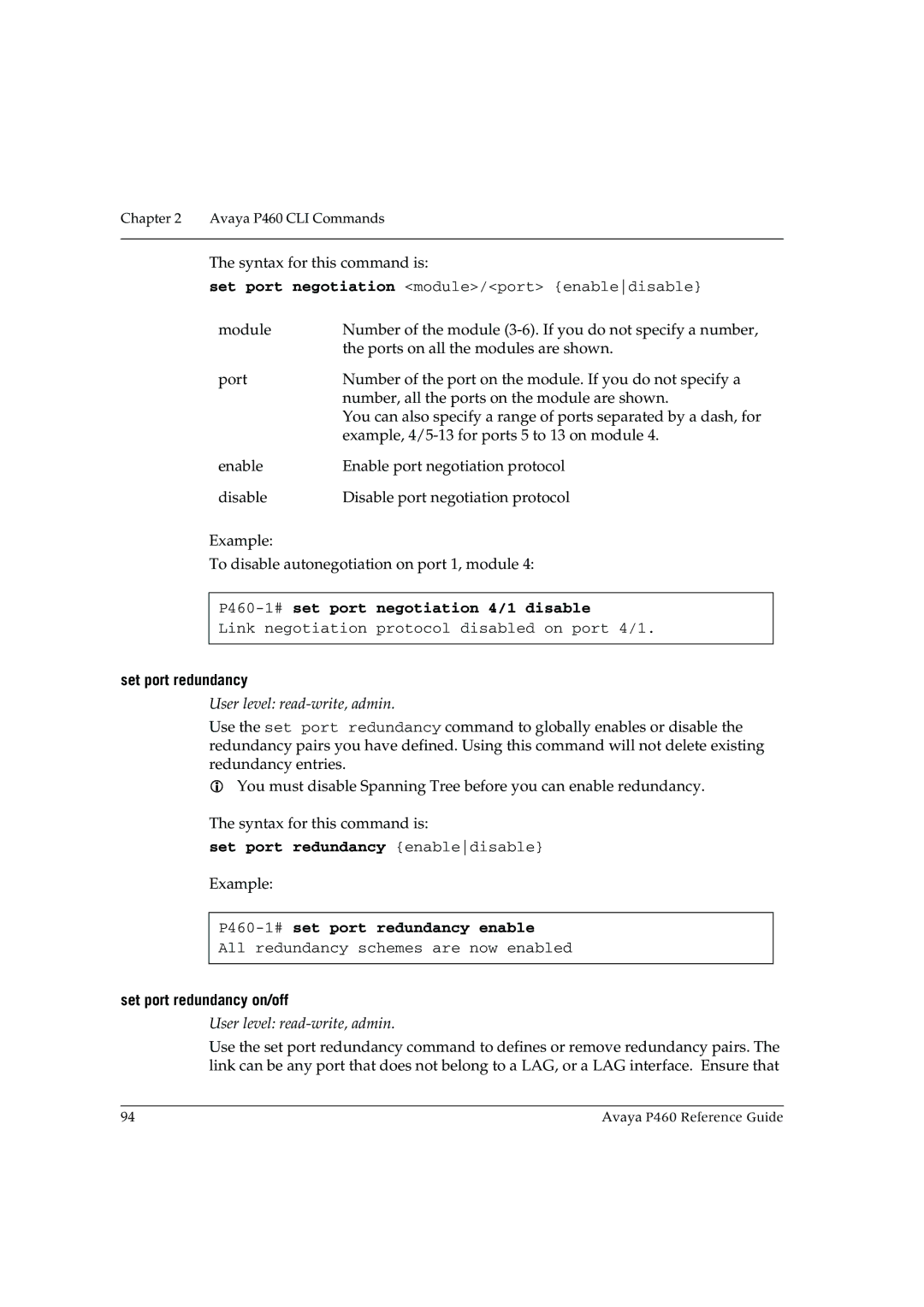
Chapter 2 Avaya P460 CLI Commands
The syntax for this command is:
set port negotiation <module>/<port> {enabledisable}
module | Number of the module |
| the ports on all the modules are shown. |
port | Number of the port on the module. If you do not specify a |
| number, all the ports on the module are shown. |
| You can also specify a range of ports separated by a dash, for |
| example, |
enable | Enable port negotiation protocol |
disable | Disable port negotiation protocol |
Example:
To disable autonegotiation on port 1, module 4:
P460-1# set port negotiation 4/1 disable
Link negotiation protocol disabled on port 4/1.
set port redundancy
User level: read-write, admin.
Use the set port redundancy command to globally enables or disable the redundancy pairs you have defined. Using this command will not delete existing redundancy entries.
You must disable Spanning Tree before you can enable redundancy.
The syntax for this command is:
set port redundancy {enabledisable}
Example:
P460-1# set port redundancy enable
All redundancy schemes are now enabled
set port redundancy on/off
User level: read-write, admin.
Use the set port redundancy command to defines or remove redundancy pairs. The link can be any port that does not belong to a LAG, or a LAG interface. Ensure that
94 | Avaya P460 Reference Guide |
